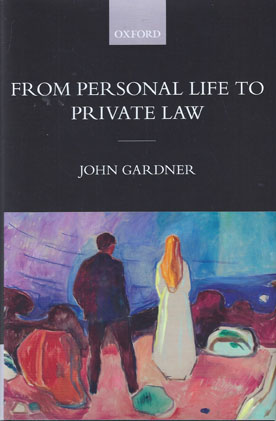
Mounting a lawsuit against someone who has wronged you is a prospect no less fearful than being on the receiving end of such a lawsuit.
Litigation in the courts has a reputation for being a byzantine process far removed from ordinary life, often failing to address people's real grievances while adding to their pain. Yes, there is money to be had if you win. But beyond that, what is it all in aid of?
In this book John Gardner argues that, in spite of their legal intricacy, many of the questions that perennially occupy the courts in civil cases are actually timeless puzzles about the human condition. The architecture of the law of torts and the law of contract turns out to track the contours of personal life much more closely than you might expect.
Using a wide range of examples from literature and life as well as law, Gardner explores big questions about our relationships to our own pasts and our own futures as well as to other people. What are friends for? Why does it matter how your actions turn out? What is the good of saying sorry? Why regret your mistakes? How can anyone be compensated for an irreversible loss? Why would you want to hold onto the life you already have? And what does any of this have to do with all those protracted legal disputes about damaged cars, ruined holidays, and leaky roofs?